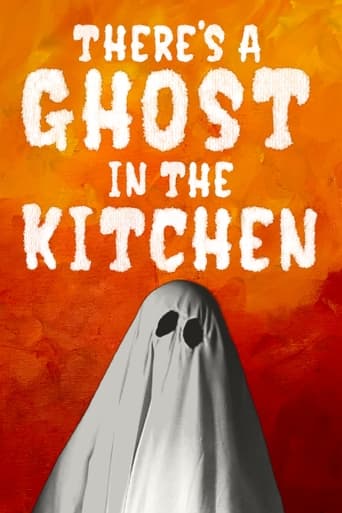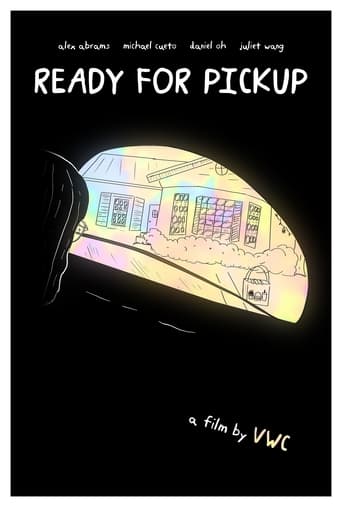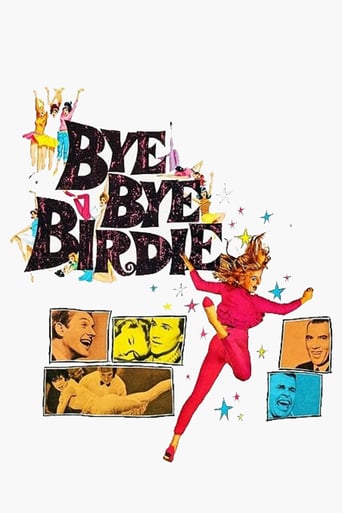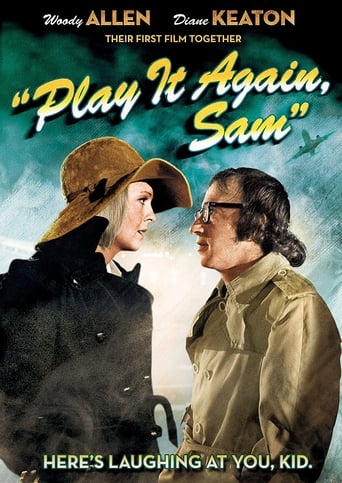
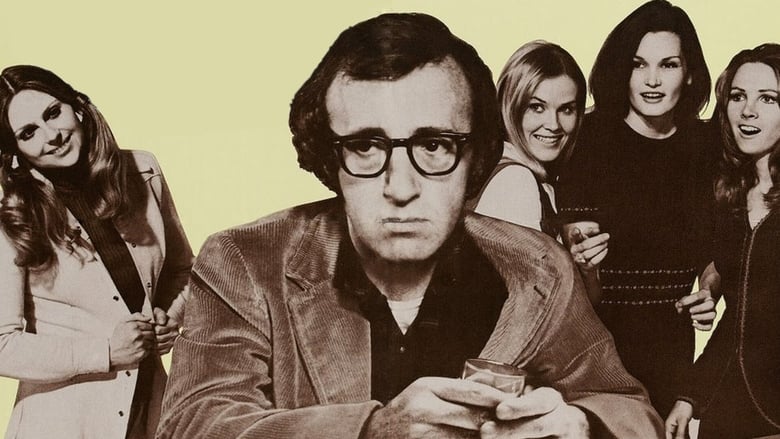
Play It Again, Sam (1972)
A neurotic film critic obsessed with the movie Casablanca (1942) attempts to get over his wife leaving him by dating again with the help of a married couple and his illusory idol, Humphrey Bogart.
Watch Trailer
Cast
Similar titles
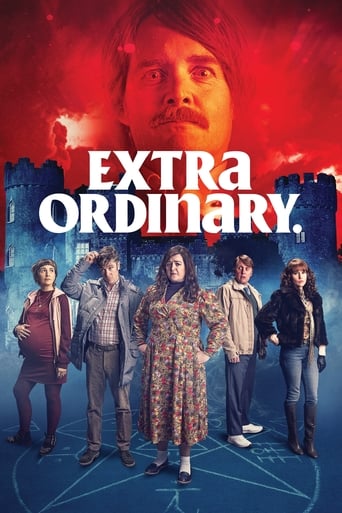
Reviews
the audience applauded
Thanks for the memories!
Although I seem to have had higher expectations than I thought, the movie is super entertaining.
All of these films share one commonality, that being a kind of emotional center that humanizes a cast of monsters.
When Allen's wife divorces him, his best friends Dick and Linda, a married couple, attempt to set him up with a new woman. But Dick is busy with work and doesn't pay enough attention to his wife, who spends so much time with Allen they fall in love. Coming nearly two decades earlier, it is perhaps the most Seinfeld-esque film I have seen, and Woody's greatest gift here is the ability to poke fun at himself. He plays a neurotic, anxious, insecure film buff who hilariously makes a fool of himself in front of every new woman he meets, employing both slapstick and one liners. There is also a fantasy element as Humphrey Bogart of Casablanca, a prototype for the alpha male, appears in the background shots as the muse in Allen's imagination, giving him advice on how to approach each situation. Aside from the finale, purposefully mimicking the finale of Casablanca, there is virtually none of that films noir or romantic lighting effects, presenting 'Play It Again, Sam' as a piece of 'reality' to that films stylization. It is fairly light stuff, but a comedians job is to make you laugh, and it certainly does that. Very enjoyable and well crafted.
The Three Acts:The initial tableaux: At the very front of the film is an extended clip from the tail end of Casablanca (1942). If you are aiming to see Play It Again, Sam I would suggest seeing Casablanca first, if you have not already. That parting scene is close to the heart of neurotic movie critic Allan, who lives in San Francisco.The film soon jumps to the reality of Allan's wife leaving him. Allan's involvement with Casablanca spills over into his life as the waking hallucination of Bogart giving him advice for his many problems. No one else sees Bogart, of course.Delineation of conflicts: Allan's arguments with his ex wife are largely over, but she comes back to bite him now and then. Allan tries to re-enter the dating scene with the help of close friend Dick Christie and wife Linda Christie. These attempts run counter to Allan's lack of confidence, urge to impress by fakery, and need to make clever comments over making progress. Bogart's suggestions make sense for Bogart, but not so much for Allan.As the dating failures mount, Allan and Linda have a growing sense of attraction. Linda is married to Dick, and Dick is Allan's best friend, so how can this work?Resolution: The film comes full circle.
"Play it Again, Sam" is a quote from the 1940's classic film "Casablanca" which Humphrey Bogart actually never said to Dooley Wilson who plays the piano at Rick's. (The closest is Ingrid Bergman saying "Play it, Sam", asking to play the song "As Time Goes By".) "Play it Again, Sam" is an early 1970's comedy-film, which began its life as a Broadway stage play, and is an interesting juxtaposition of Old Hollywood, pre-1960, and the new crop of leading actors of the late 1960's and 1970's who are quite different than the old tough guys of Old Hollywood. Humphrey Bogart, Clark Gable, Kirk Douglas, Charlton Heston and many others were leading men whose roles were always the dominant male resolved to make things right. In the late 1960's Woody Allen was one of many actors and writers who explored a new take on the male persona, one who was more complex but curious, emotional and even vulnerable. He could even be insecure and neurotic at times. Woody Allen, Dustin Hoffman, Ryan O'Neil, and Dudley Moore to name a few, are male actors who probably only could have landed supporting roles during the time of the Hollywood Studio before circa 1960.The story involves sex-starved recently divorced Allan Felix (Woody Allen) who is having problems getting post-marital dates. He idealizes Humphrey Bogart who appears as a kind of fantasy-apparition to give him advice about his sex life, particularly his behavior towards women. There almost can't be two more diametrically opposed male personas: Woody Allen, the neurotic, and Humphrey Bogart, the heroic American male. The film begins with Allen at a movie theatre watching the last scene of Casablanca, quite possibly the most quintessential scene of the male hero, sacrificing a love relationship for the cause of humanity. In addition to Bogey, Allan also has a fantasy persona of his ex-wife who constantly torments him about why she left him and his sexual inadequacy. Bogey and his ex-wife are like angels on his shoulder, but one tries to encourage and the other tries to discourage.To help him in the "real" world, Allan has the friendship of a married couple, Dick and Linda (Tony Roberts and Dianne Keaton), who try to set up Allan with dates. Much of the first half of the film is a series of dating misadventures in which Allen either tries too hard to "be cool" or through some mishap the date becomes a fiasco. In his first encounter with a mutual friend, he tries to make himself out as Mr. Confidence with disastrous results. His friend Dick is often engaged in numerous financial deals which allows his wife Linda to give time to Allan. She tries to console him and set him up with more dates. Inter-spliced between Linda and his dates, Allan constantly fantasizes about things aside from Bogart and his ex-wife. He dreams of ideal scenarios with women and others which turn against his goals, almost like scenes from old Hollywood films. Then as events go along, Allan finds he's falling in love with Linda, and the feelings may be mutual.This film is quintessential Woody Allen, playing the neurotic persona, desperate to the point of exasperation. He dresses funny, he tries to be "manly" which doesn't work since he isn't. He doesn't exude the aura of a Bogart or a Heston, being a film writer. He's more of an intellectual than a get-things-done type. Throughout are the little witty and sarcastic remarks which made Allen one of the most popular stand-up comedians in the 1960's. One example from many in the film is when Dick tries to liken Allan's former marriage to a business deal:Dick: Allan, you have invested your emotions in a losing stock, it was wiped out, it dropped off the board. Now what do you do Allan? You reinvest. Maybe in a more stable stock. Something with long term growth possibilities. Allan: Who are you going to fix me up with, General Motors? If there is a message to the story, which I think there is, it is that we need to be ourselves and let someone find us who simply likes us as we are. Too often, we try to be something else to impress the opposite sex, and that's never going to work even among the most idealistic of circumstances.
"I wonder if she actually had an orgasm in the two years we were married, or did she fake it that night?" - Woody Allen One of Woody Allen's best films precisely because it is directed not by Woody, a visually inept director who thinks verbally more than visually, but by Herbert Ross, a director who lends some pace, style, movement and energy to Allen's charming and funny screenplay, "Play It Again Sam" also marks the point at which Allen's films moved away from broad, Marx-brothers inspired comedy, to more introspective, supposedly "serious" territory.The film stars Woody Allen as Allan Fellix, a morose, neurotic, whiny, inhibited, nerdy, angsty, articulate, cynical, wormy, socially and sexually maladjusted loser. He's your classic Woody Allen schmuck, perpetually trapped between the musings of the mind ("What's the point of anything!?") and the lusts and longings of the body ("Why won't she love me!?").Divorced from his wife and desperate to hook up with another woman, Allen spends the film bouncing from one bungled romantic date to the next, until he realises that he's in love with a character played by Diane Keaton, wife of his best friend. Much of the film references Humphrey Bogart's "Casablanca", Allen's meek and dysfunctional brand of masculinity, compared with Bogey's suave, debonair demeanour. Poor Allen just wants to be a hero like his on screen idol, a chance which the film sets up in its "Casablanca" inspired climax, only to swiftly undermine. He'll always be a loser. But this reassures us, as the all pervasive sense of failure Woody brings to almost everything he does makes even the smallest victory, and every morsel of hope, both a triumph and inspiration.The film was seen as being fresh and unbridled in the early 70s, loosening up and destroying what many had previously thought of as "romantic comedies". The tone is breezy, the style somewhat experimental (as most of Allen's films are) and the script wild and devil-may-care, though filled with wit and observation. Much of the humour is improvised, and on several occasions Ross' camera catches the unscripted cracking-up of characters as they laugh at Woody's unexpected, improvised antics.Yes, today "Sam's" overall plot may be regarded as formulaic, Allen's brand of humour having long found its way into countless movies and TV sitcoms, but the jokes still hold up. Virtually every minute is packed with humour, wit, clever one liners and both smart and silly jokes. Like most of Allen's films during this period, he essentially mingles old school farce and physical comedy, with high brow humour, silliness, Camus/Sartre inspired existentialism and Kierkegaardian Absurdism.This sweet spot in Woody's career would end with "Interiors", when he began drifting away from his stand-up roots and began doing rifts on art-house directors. In this regard, his "Interiors" becomes a rift on Bergman's "Cries and Whispers", his "Midsummer Night's Sex Comedy" becomes a farcical version of Bergman's "Smiles of a Summer Night" whilst "Wild Strawberries" becomes Allen's "Another Woman". Meanwhile, Fellini's "8 1/2" becomes "Stardust Memories", "Amarcord" becomes "Radio Days" and Fellini's section in "Boccaccio 70" becomes Allen's short in "New York Stories".Most of Allen's scripts have some clever, experimental meta-construction. Here every character is an observer, looking in on Allen and sharing their observations. Allen himself plays himself looking and commenting on himself as Allan Fellix.All the film's female characters are air-heads, except Keaton, who plays a neurotic woman with a low self esteem; ie- easy prey for the equally maladjusted Allen.8.9/10 - Worth two viewings.




